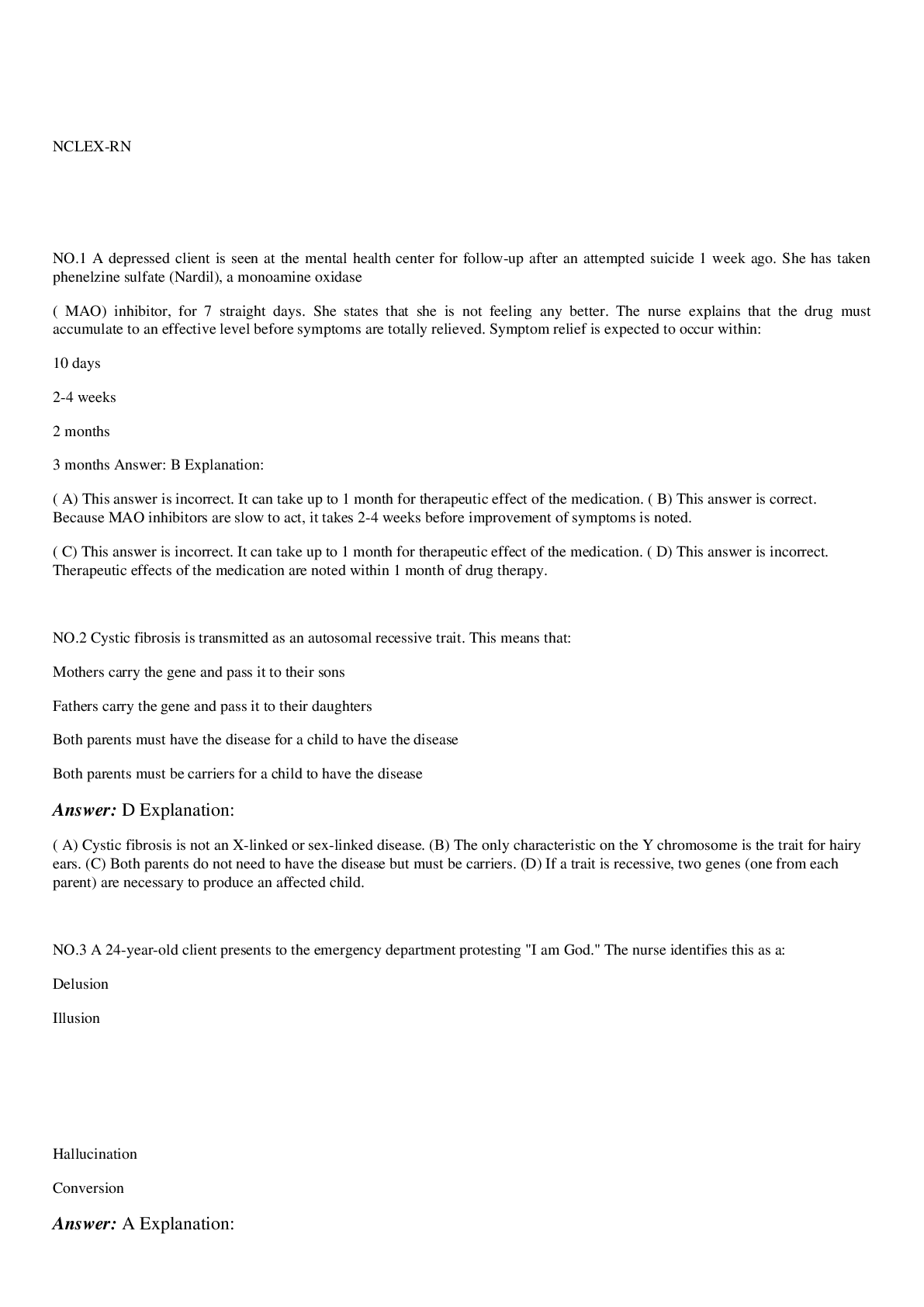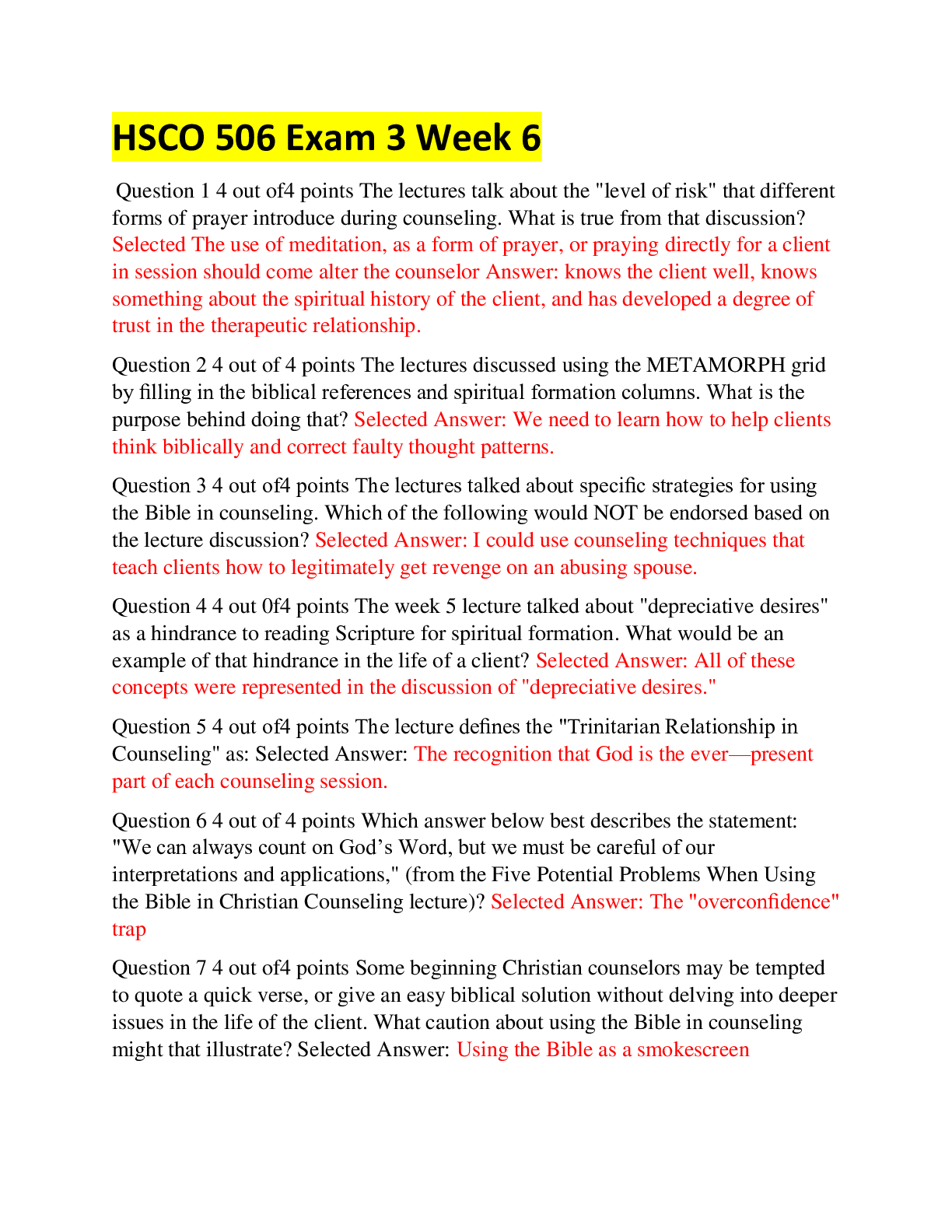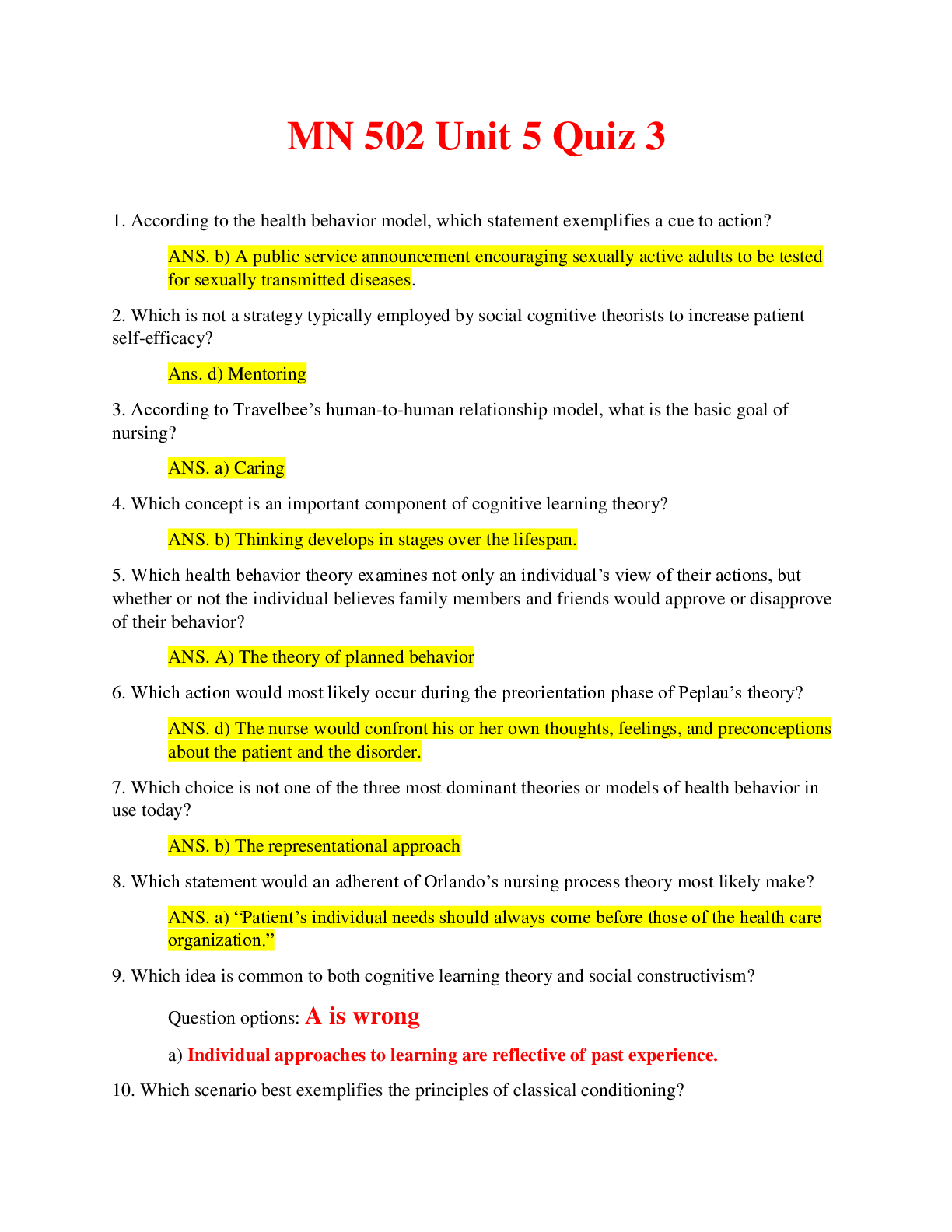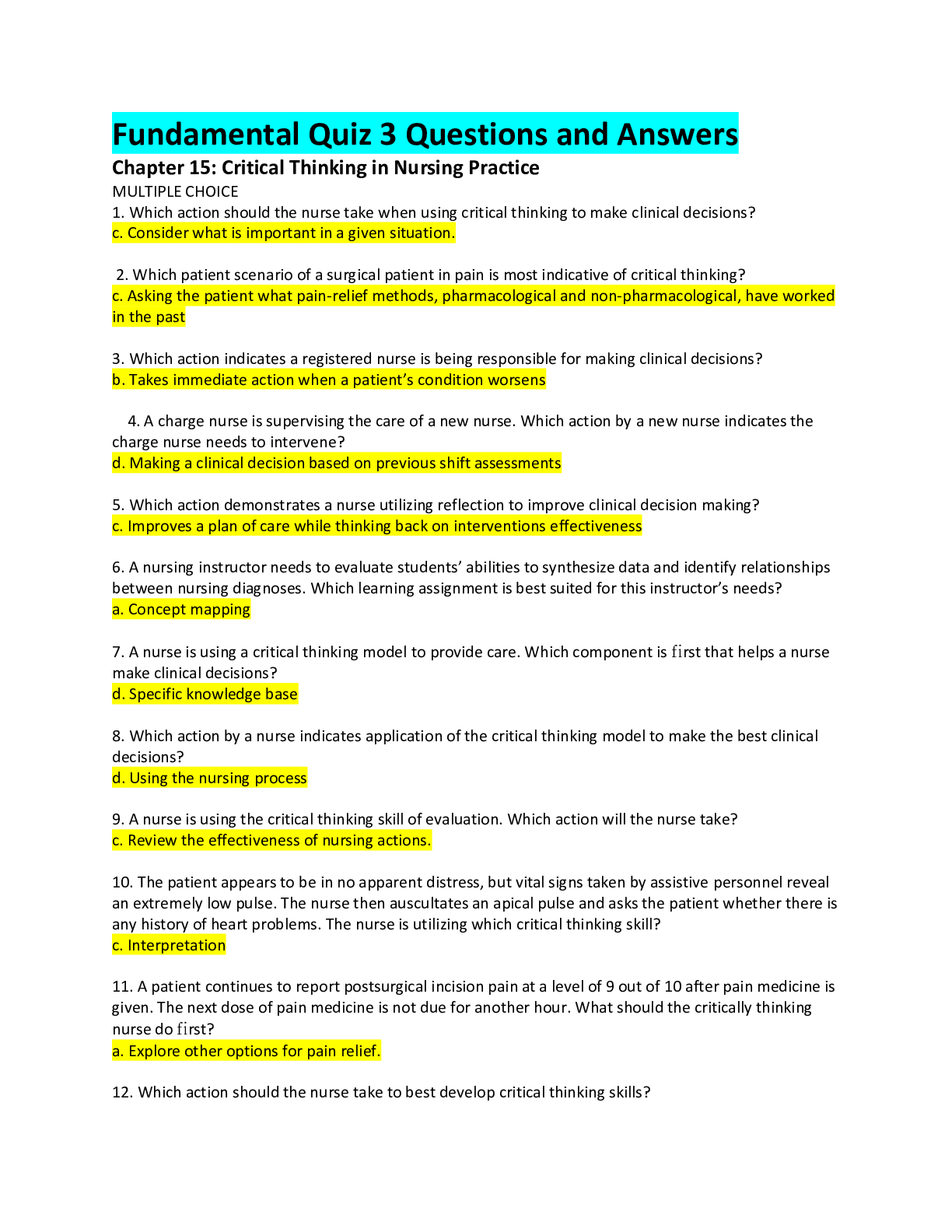Liberty University CJUS 330 Test 3 Questions And Answers Latest Version
Document Content and Description Below
CJUS 330 Test 3 • Question 1 2 out of 2 points On any given day, approximately __________ of the nearly 744,600 persons in jail have not been convicted of any crime. • Question 2 ... 2 out of 2 points Which of the following is a power of the grand jury? • Question 3 2 out of 2 points The leading advocate for federal grand jury reform is the: • Question 4 2 out of 2 points Which of the following reasons for case attrition directly involves the courtroom work group? • Question 5 2 out of 2 points Which of the following is NOT included as an index crime under the “violent crimes” category? • Question 6 2 out of 2 points All of the crimes cleared by police each year result in approximately __________ million arrests for nontraffic offenses. • Question 7 1.5 out of 1.5 points There are three types of charging documents. • Question 8 1.5 out of 1.5 points Most cases in the criminal justice system are celebrated cases. • Question 9 1.5 out of 1.5 points Grand juries are used extensively in jurisdictions where the constitution requires a grand jury indictment for all felonies. • Question 10 1.5 out of 1.5 points The strength of the evidence police provide to prosecutors is one of the most important factors influencing whether prosecutors file criminal charges. • Question 11 1.5 out of 1.5 points During a preliminary hearing, the state must provide clear and convincing evidence of the defendant’s guilt. • Question 12 1.5 out of 1.5 points Most felony crimes are for nonviolent offenses. • Question 13 2 out of 2 points The Miranda warnings do not have to be given before law enforcement obtains __________. • Question 14 2 out of 2 points The exclusionary rule applies to __________. • Question 15 2 out of 2 points Searches fall into which two broad categories? • Question 16 2 out of 2 points Which of the following cases deals with “stop and frisk”? • Question 17 2 out of 2 points Which of the following actors would be in favor of broader discovery laws? • Question 18 2 out of 2 points The __________ Amendment provides that “in all criminal prosecutions, the accused shall enjoy the right… to have the Assistance of Counsel for his defense.” • Question 19 2 out of 2 points Those who want to see the exclusionary rule abolished argue that __________ should be enough to deter police misconduct. • Question 20 1.5 out of 1.5 points The exclusionary rule prohibits the prosecutor from using illegally obtained evidence during a trial. • Question 21 1.5 out of 1.5 points Reciprocal disclosure by the defense during discovery is limited because the Constitution affords certain fundamental protections to the defendant. • Question 22 1.5 out of 1.5 points If the defense had to disclose evidence to the prosecution, the privilege against self-incrimination would be rendered meaningless. • Question 23 1.5 out of 1.5 points Rejection of search warrant applications by magistrates is a common occurrence. • Question 24 1.5 out of 1.5 points If a search warrant is issued, the police must execute the warrant immediately. • Question 25 1.5 out of 1.5 points The exclusionary rule is commonly associated with the search and seizure of physical evidence under the Fourth Amendment. • Question 26 1.5 out of 1.5 points Traditionally, English common law routinely admitted all confessions, even those produced by torture. • Question 27 2 out of 2 points To gain a potential advantage in plea bargaining, prosecutors sometimes: • Question 28 2 out of 2 points Is the following considered law on the books or law in action: the defendant pleads guilty to some, but not all, of the counts contained in the charging document? • Question 29 2 out of 2 points In __________, when a defendant enters a plea of guilty, the judge must determine whether the plea is knowingly entered and completely voluntary. • Question 30 2 out of 2 points A defendant is charged with aggravated assault. The prosecutor will accept a plea to simple assault. This is an example of which kind of bargain? • Question 31 2 out of 2 points Defendants and their lawyers may opt for a trial if they think the case factually presents a reasonable doubt, or if: • Question 32 2 out of 2 points Judges can accept which of the following pleas? • Question 33 2 out of 2 points When the prosecutor allows the defendant to plead guilty to a less serious charge than the one originally filed, this is called: • Question 34 1.5 out of 1.5 points There is no research supporting the existence of a jury trial penalty. • Question 35 1.5 out of 1.5 points Three major factors influence bargaining and discretion. • Question 36 1.5 out of 1.5 points Most defendants plead not guilty. • Question 37 1.5 out of 1.5 points When entered, a guilty plea pursuant to a plea bargain can never be withdrawn. • Question 38 1.5 out of 1.5 points The prosecutor proceeds from a position of strength in plea bargaining. • Question 39 1.5 out of 1.5 points Bargaining is possible because each of the legal actors in the courtroom work group understands the realities of law in action. • Question 40 1.5 out of 1.5 points Sentences for defendants who are found guilty after trial are generally less severe than the expected sentence for the same offense after a guilty plea. [Show More]
Last updated: 2 years ago
Preview 1 out of 6 pages

Buy this document to get the full access instantly
Instant Download Access after purchase
Buy NowInstant download
We Accept:

Reviews( 0 )
$12.00
Can't find what you want? Try our AI powered Search
Document information
Connected school, study & course
About the document
Uploaded On
Oct 17, 2020
Number of pages
6
Written in
Additional information
This document has been written for:
Uploaded
Oct 17, 2020
Downloads
0
Views
127

.png)








.png)













 CARDIOVASCULAR PRESRIBING (113 Questions and Answers) – South University Savannah.png)

